Indigenous Governance Database
food sovereignty
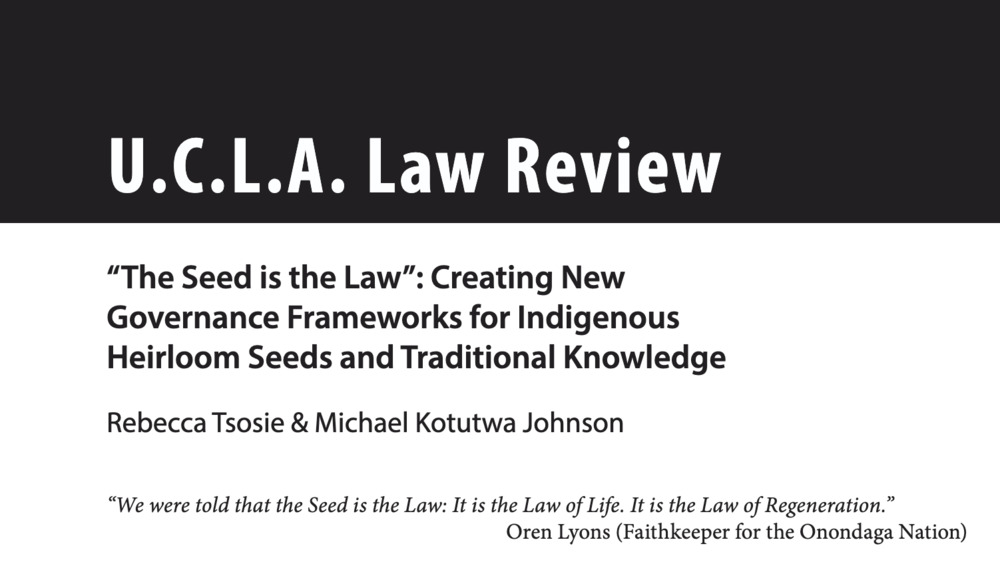
"The Seed is the Law": Creating New Governance Frameworks for Indigenous Heirloom Seeds and Traditional Knowledge
The United Nations World Intellectual Property Organization (WIPO) held a diplomatic conference in May 2024 where participants adopted a historic new treaty on Intellectual Property, Genetic Resources and Associated Traditional Knowledge. The treaty is intended to improve the patent system by…

Our lands tell our stories: supporting Indigenous co-led research through the Indigenous Foods Knowledges Network
The Indigenous Foods Knowledges Network (IFKN) brings together Indigenous researchers and community leaders from the Arctic and U.S. Southwest along with non-Indigenous researchers to foster cross-cultural interdisciplinary knowledge exchange about sovereignty of Indigenous foods. IFKN draws on…
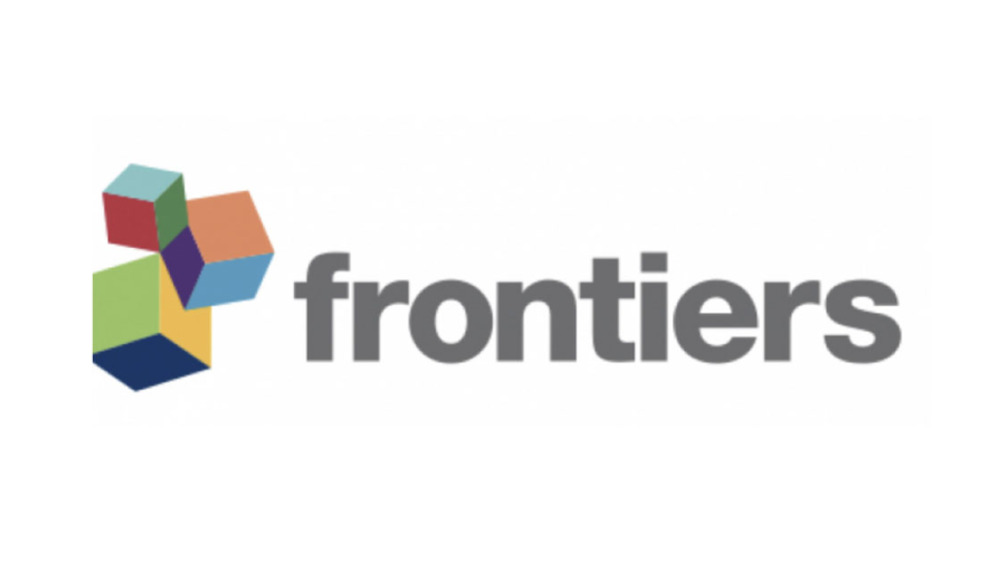
Indigenous Peoples' Rights in Data: a contribution toward Indigenous Research Sovereignty
Indigenous Peoples' right to sovereignty forms the foundation for advocacy and actions toward greater Indigenous self-determination and control across a range of domains that impact Indigenous Peoples' communities and cultures. Declarations for sovereignty are rising throughout Indigenous…
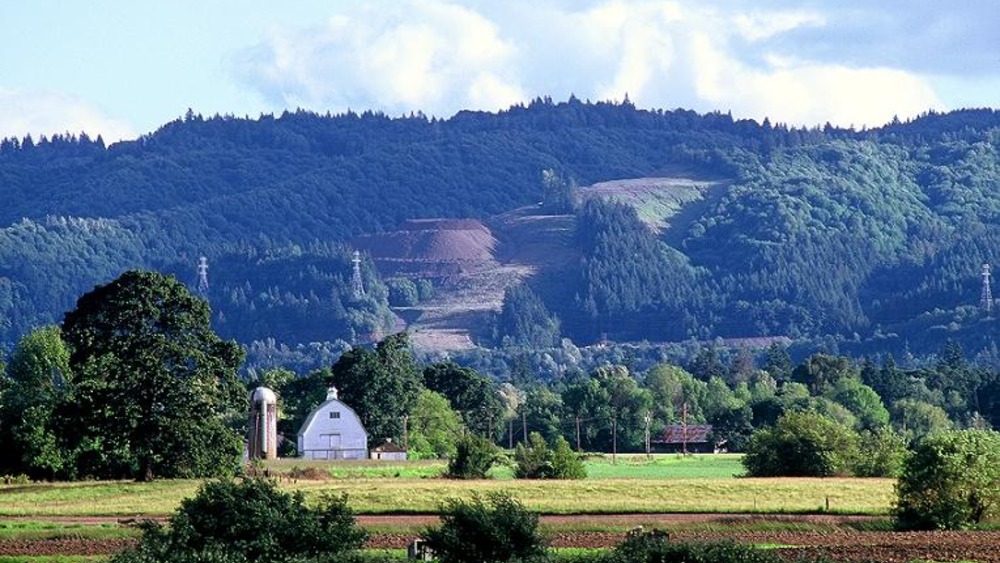
New reporting project focuses on Indigenous food sovereignty in the Columbia River Basin
There’s no official definition for the term “food sovereignty,” but the Indian Affairs Bureau describes it as “the ability of communities to determine the quantity and quality of the food that they consume by controlling how their food is produced and distributed.” Portland-based news outlet…
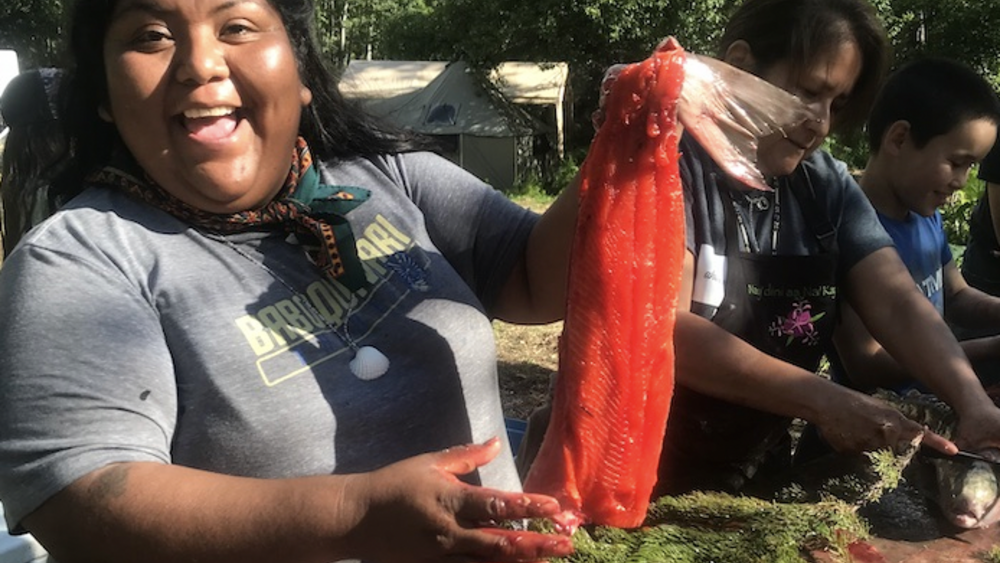
Indigenous Foods Knowledges Network: Facilitating Exchange between Arctic and Southwest Indigenous Communities on Food and Knowledge Sovereignty
On a sunny morning in June of 2019, our hosts at the Athabaskan Nay'dini'aa Na'Kayax' Culture Camp, located near Chickaloon Native Village in south-central Alaska, set up a table near the smoke house and demonstrated how to fillet salmon. It was salmon season in Chickaloon, and young campers were…
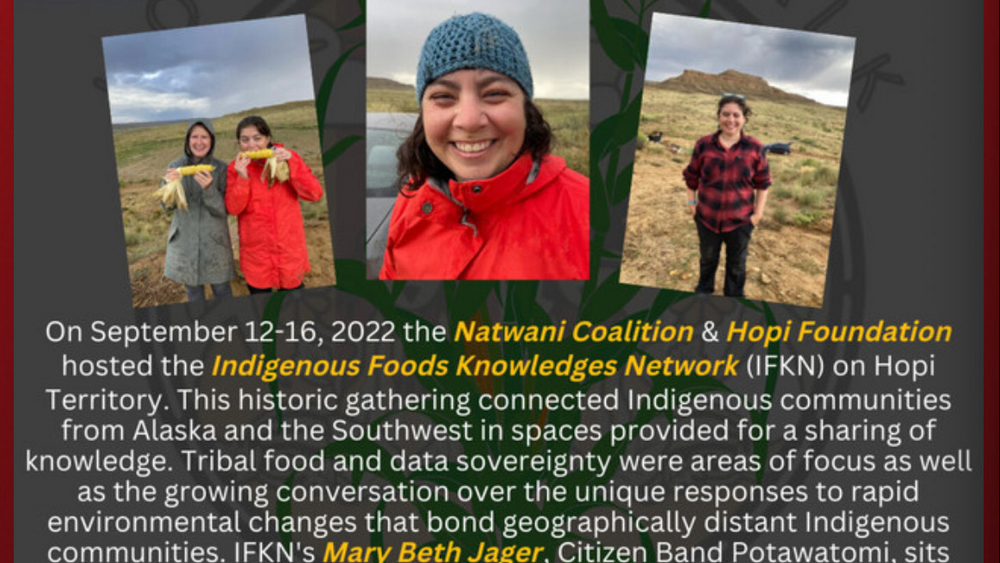
Hopi Farm Talk Podcast: Indigenous Foods Knowledges Network Gathering with Mary Beth Jäger
On September 12-16, 2022, the Natwani Coalition & Hopi Foundation hosted the Indigenous Foods Knowledges Network (IFKN) on Hopi Territory. This historic gathering connected Indigenous communities from Alaska and the Southwest in spaces provided for a sharing of knowledge. Tribal food and data…
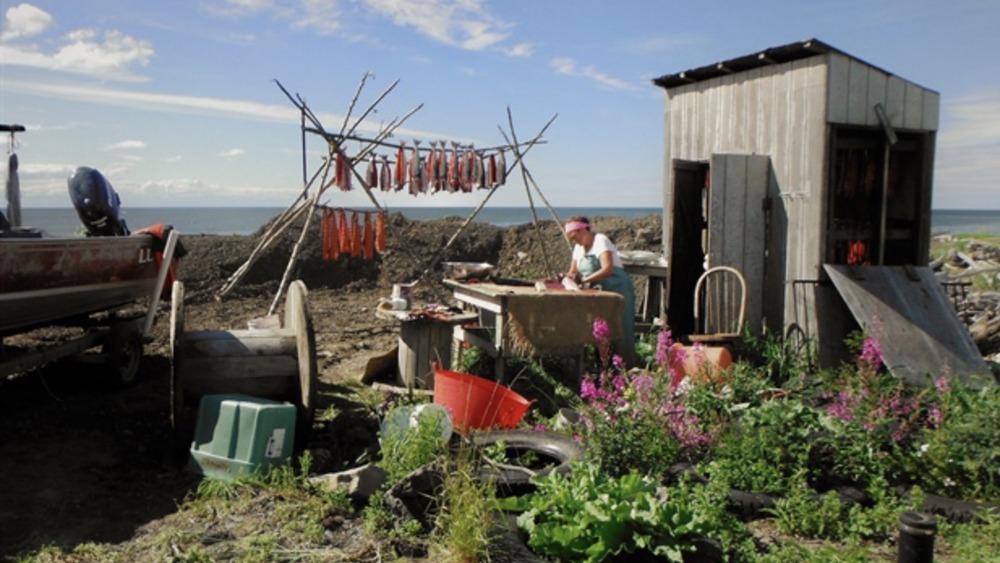
The Impact of COVID-19 on Food Access for Alaska Natives in 2020
This chapter in the NOAA Arctic Report Card 2021 highlights: The COVID-19 pandemic has exacerbated existing challenges for Alaska Natives in accessing traditional and store-bought foods. The strength of Indigenous cultural and economic practices such as food sharing networks helped mitigate…
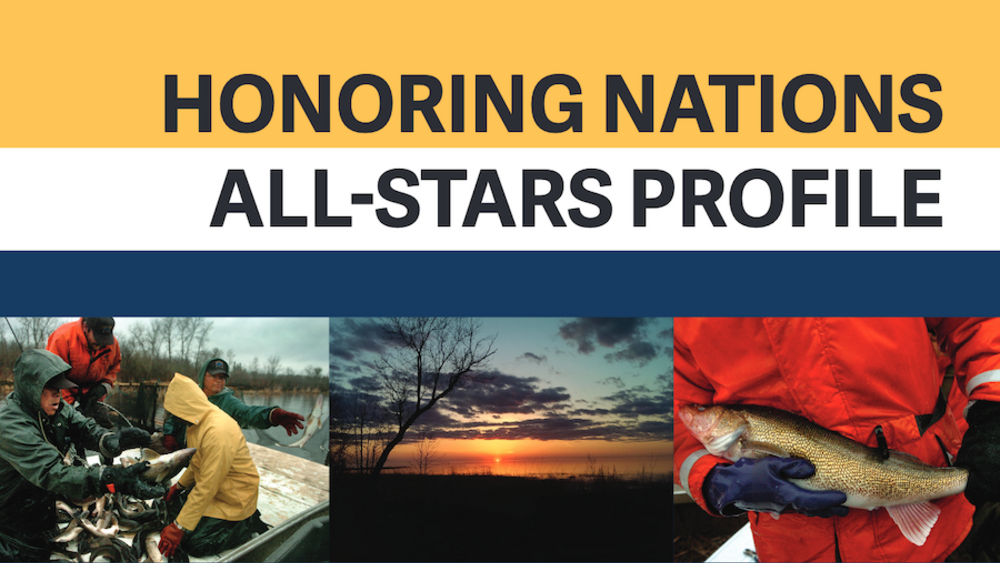
Honoring Nations All-Stars Profile: The Red Lake Walleye Recovery Program
In 1997, the members of the Red Lake Fisheries Association (RLFA), a cooperative established by com-mercial fishermen from the Red Lake Nation,1 voted to discontinue all commercial gillnet fishing on Red Lake for the upcoming season. An overwhelming majority of the RLFA’s members supported the…
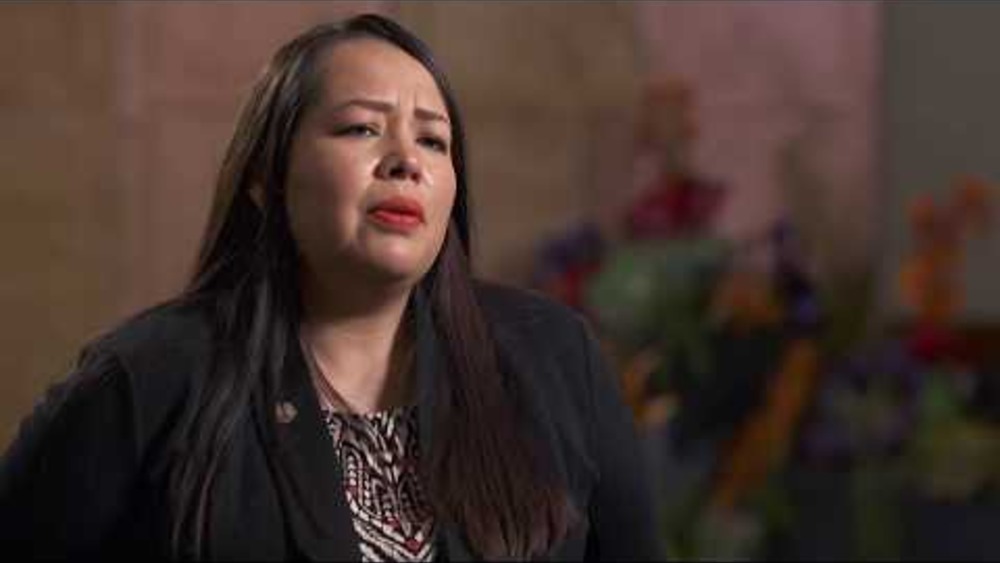
Sovereign Nations: Giving Visibility
Tribal nations have always had formal ways of self-governing. Take a closer look at local Tribes exercising their inherent rights to land, culture, and self-governance in a contemporary context. Produced in partnership with TPT-Twin Cities PBS and producer/director Missy Whiteman. Special thanks to…

Ahwahsiin (The Land/Where We Get Our Food)
Indigenous Peoples’ knowledge and food systems are fast disappearing but are of the utmost importance, not only for sustaining Indigenous Peoples but also for providing alternative paradigms for coping with diverse ecosystems in a changing global environment. This research examines Blackfeet…
Honoring Nations: Patricia Ninham-Hoeft: Oneida Nation Farms
Patty Ninham-Hoeft, Business Committee Secretary for the Oneida Nation of Wisconsin, discusses the impact of Oneida Nation Farms on the Oneida community and how it is a concrete expression of tribal sovereignty.
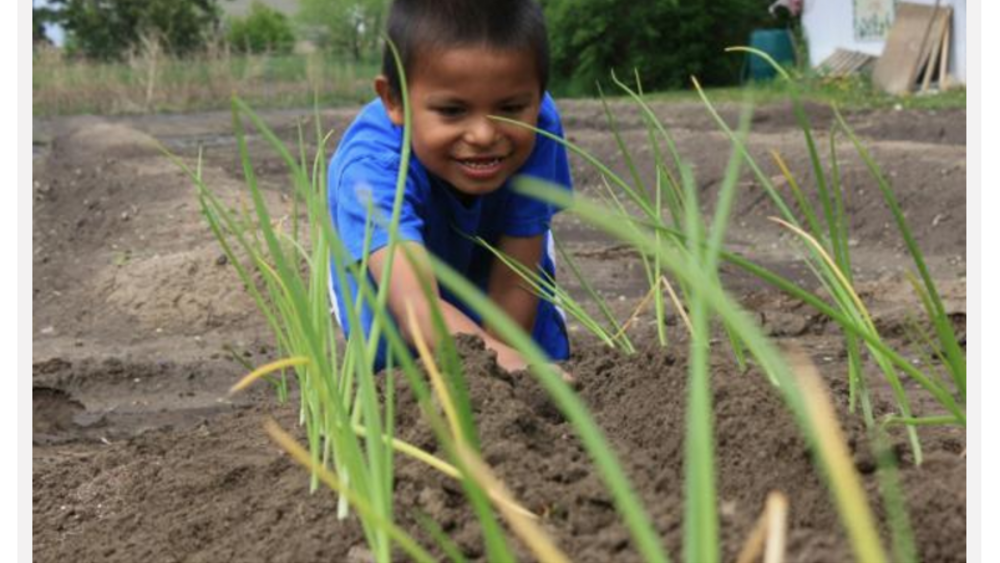
Cheyenne River Youth Project's Garden Evolving Into Micro Farm
When the Cheyenne River Youth Project started its organic garden in 1999, staff at the 26-year-old nonprofit would never have guessed where the little garden would take them. The two-acre Winyan Toka Win–or “Leading Lady”–garden is the heart of the youth project, and is becoming a micro farm.…
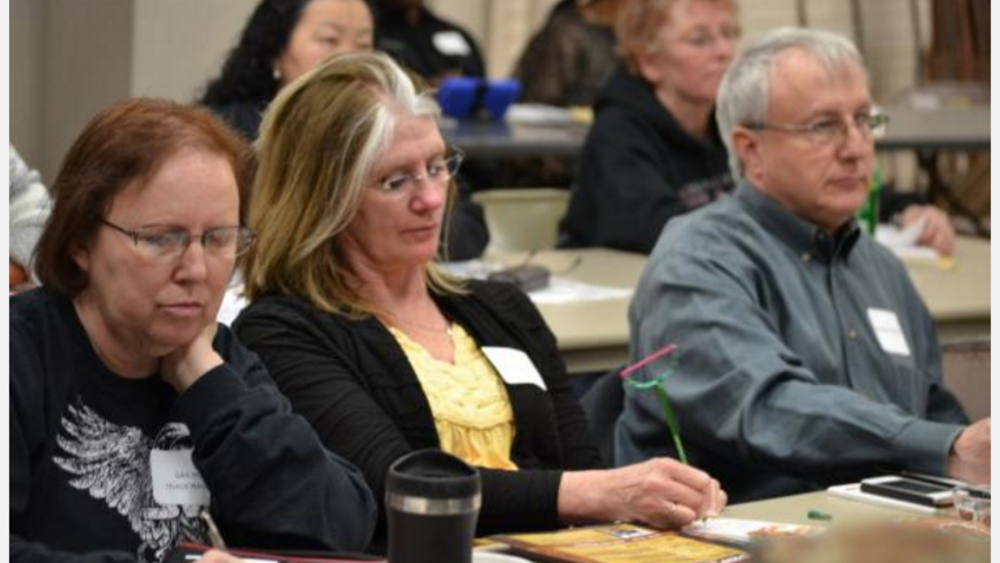
Food Sovereignty: How Osage People Will Grow Fresh Foods Locally
Growing fresh and local foods for Osage people is now a revived approach to food sovereignty for the Osage Nation so efforts to find the most successful methods are being looked into by leadership and community members. On Feb. 7, the Oklahoma Department of Agriculture along with the Oklahoma State…
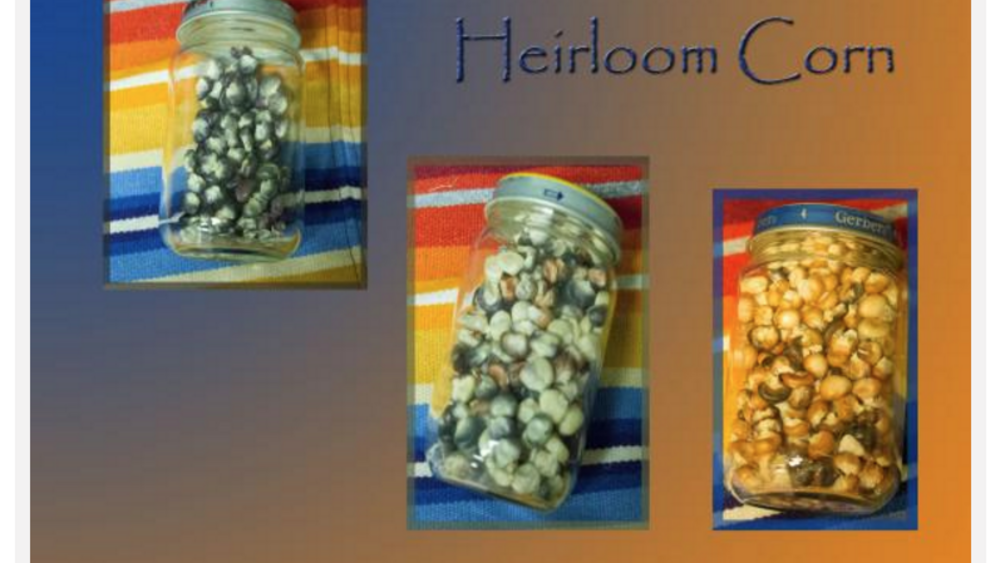
Revitalizing a Traditional Seed to Revitalize Osage Culture
Vann Bighorse, director of the Wah-Zha-Zhi Cultural Center in Pawhuska, Oklahoma, is keenly aware that Osage traditions are getting closer to slipping away–permanently. A current project to preserve Osage culture and revive a millennia old tradition is now three years in the making. The Cultural…
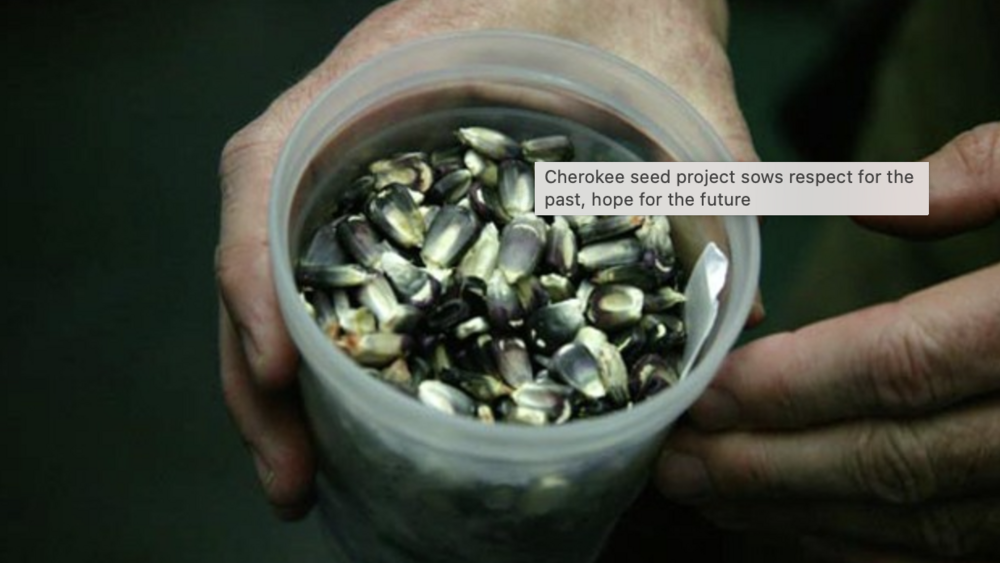
Cherokee seed project sows respect for the past, hope for the future
The Cherokee Indians are preserving the roots of their heritage with a program that allows officially recognized members of the tribe to access seeds that are unique to the Cherokee Nation. Principal Chief of the Cherokee Nation, Bill John Baker explained the seeds' lineage to CNN. "This strain of…
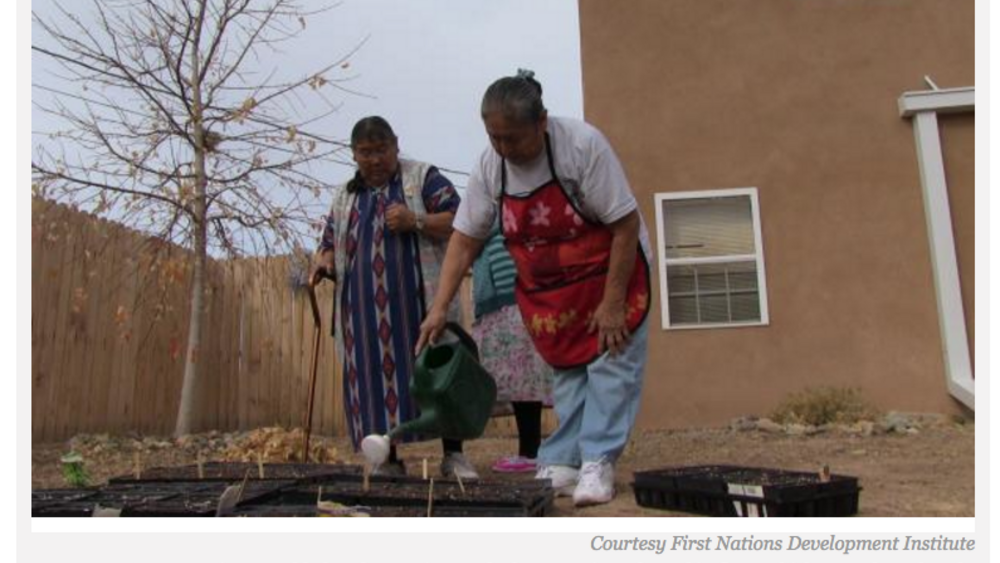
Winona LaDuke: Keep USDA Out of Our Kitchens
Native American author, educator, activist, mother and grandmother Winona LaDuke, Anishinaabekwe, is calling on tribes to relocalize food and energy production as a means of both reducing CO2 emissions and of asserting tribes' inherent right to live in accordance with their own precepts of the…
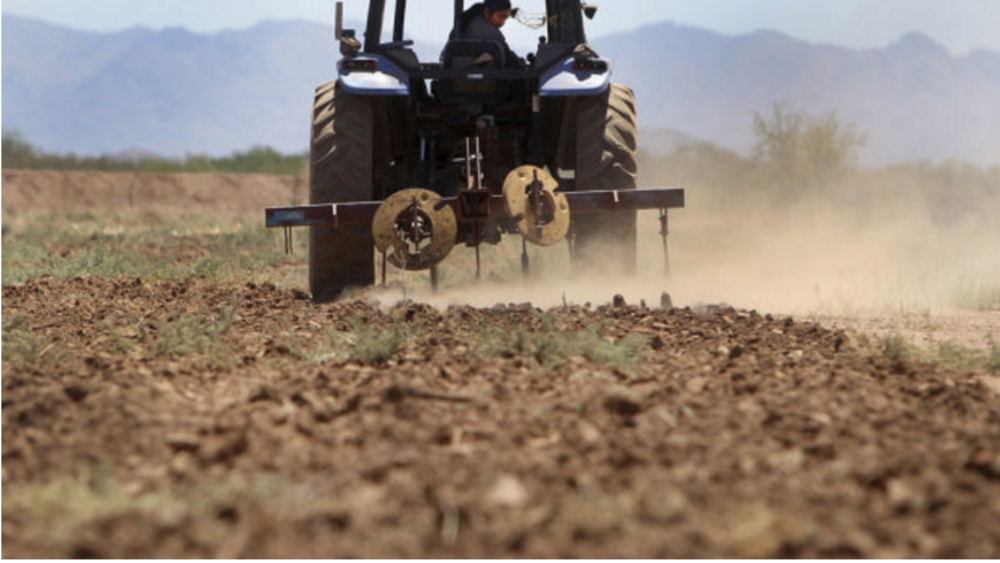
A Solution: Sowing the future for tribal youth
For aspiring farmer, Vernal Sam, 24, the physical labor came easily. Like many Tohono O'odham, he'd helped out on his uncle's cattle ranch as a kid, bringing in cash when his family needed it, and he'd helped his grandfather bury traditional tepary beans and squash seeds in the brown clay soil.…
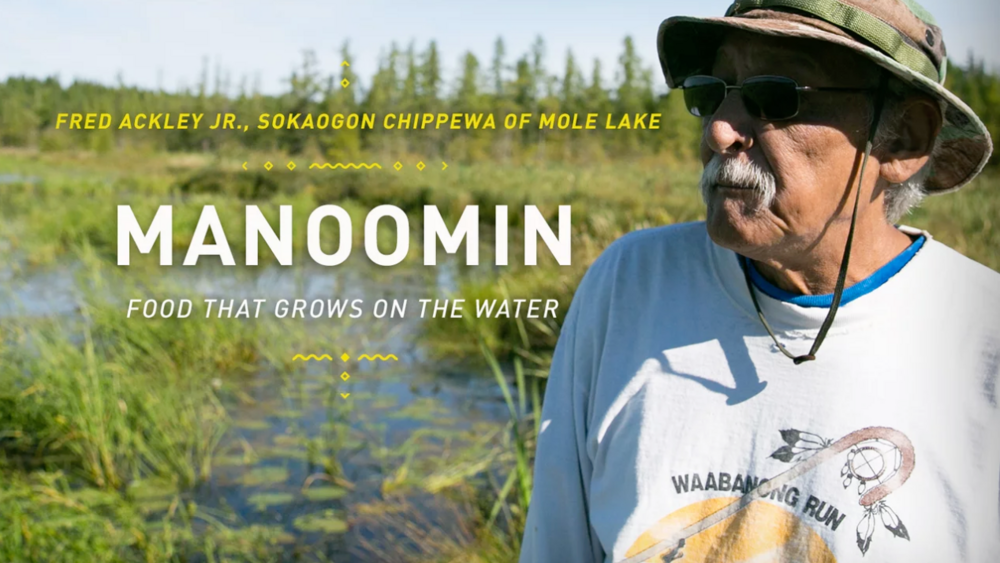
Manoomin: Food That Grows on the Water
This story follows Fred Ackley Jr. from the Sokaogon Chippewa Community of Mole Lake as he harvests and processes manoomin, or wild rice. The ancestors of his community migrated to Madeleine Island from eastern Canada long ago, then more recently to the Rice Lake area. Their 12 square mile…
Muckleshoot Food Sovereignty Project
The Muckleshoot Food Sovereignty Project is helping to increase understanding of Native foods and build community food security by exploring the Muckleshoot Tribe's food assets and access to local, healthy, and traditional foods.
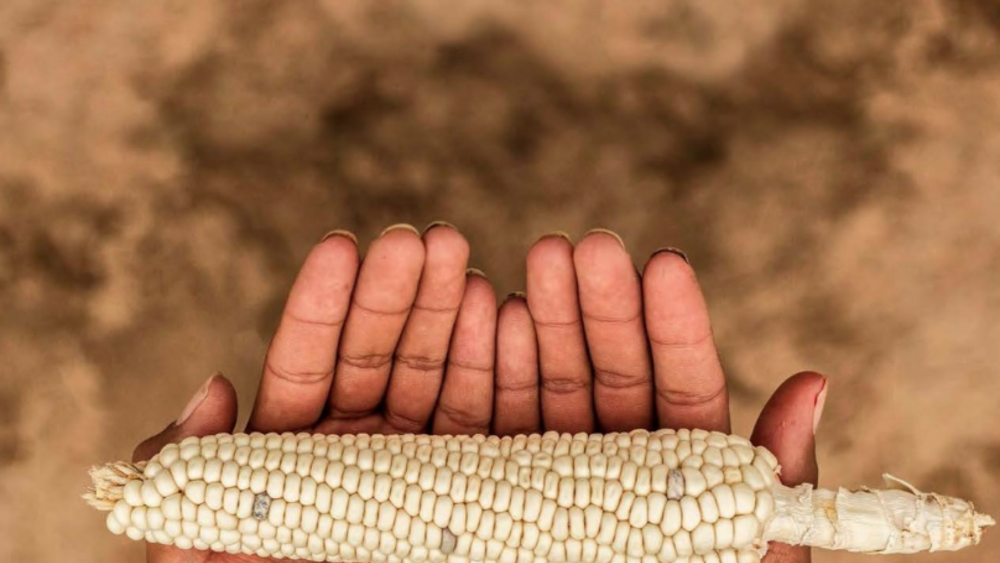
Feeding Ourselves: Food Access, Health Disparities, and the Pathways to Healthy Native American Communities
Echo Hawk Consulting, headed by Crystal Echo Hawk, released today a comprehensive report on the state of food access in Native American communities, and the resulting health disparities in Native Americans. The report--commissioned by the American Heart Association (AHA) and its Voices for Healthy…
